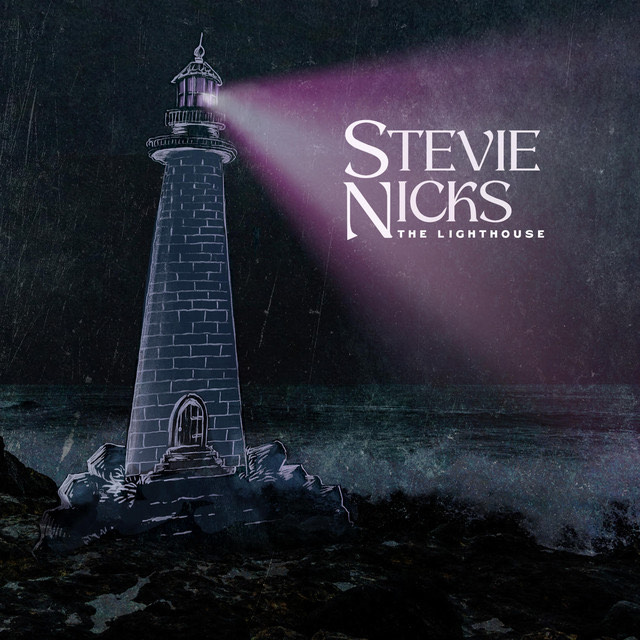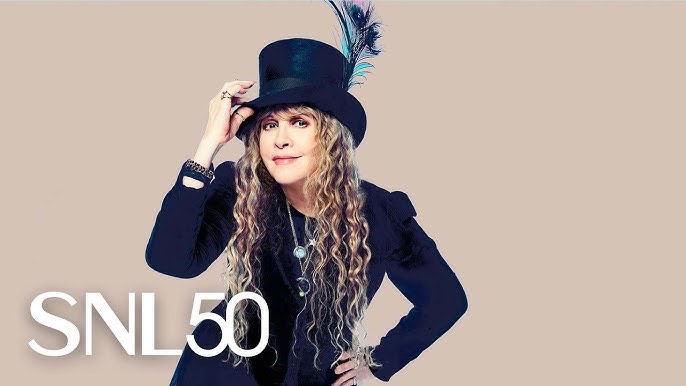Now Playing
Current DJ: DJ Eco
6kitty June from Under Pins (Hardstop) Add to Collection
Requests? 773-DJ-SONGS or .(JavaScript must be enabled to view this email address)
 by Kyle Sanders
by Kyle Sanders
Talking politics when meeting new people might be considered taboo, but there is one subject I won't hesitate to bring up at some point in conversation: Stevie Nicks.
I am a huge Stevie Nicks fan. I have been since 1998, a year when Nicks was still riding high off a very successful comeback tour with Fleetwood Mac (The Dance) while supporting the release of a retrospective boxed set celebrating her work as an enduring solo artist (Enchanted). I know every song, have read every interview, and—I still can’t believe I managed this—touched her hand.
What I’m trying to say is, I have an authority on all things Stevie, so when I tell you that her recent single, “The Lighthouse,” is the most political song she's ever recorded, I hope you’ll take my word for it.
Released at the stroke of midnight on September 27th, “The Lighthouse” was inspired by the repeal of Roe v. Wade, a landmark court decision that at one time protected a woman’s right to an abortion. The song alludes to the possible consequences of the fallout, painting a bleak future unless action is taken.
Enter Miss Nicks, who—in reference to the song’s title—wants to serve as a beacon of light gathering the women of America around her with a rallying battle cry: “I have my scars/You have yours/Don’t let them take your power…”
As a prolific singer-songwriter whose wild heart has given us hits from “Sara” to “Stand Back,” Nicks reacted to the devastating Supreme Court decision the only way she knew how. “It seemed like overnight, people were saying ‘What can we, as a collective force, do about this?’ For me, it was to write a song,” Nicks explained in an Instagram post.
“I was watching the news on TV and a certain newscaster said something that felt like she was talking to me—explaining what the loss of Roe v. Wade would come to mean. I wrote the song the next morning and recorded it that night.”
For decades, Stevie Nicks has charmed the chiffon off of audiences with her flowy shawls and platform boots, as well as a mystical collection of songs involving doomed romances and dark women. Songs about crystal visions, gypsies, and white-winged doves have often been part of her repertoire, with frequent references to ex-boyfriend and former bandmate Lindsey Buckingham for added drama. If you were to define her catalog of music, both with Fleetwood Mac and her solo work, the last thing you’d describe it as would be “politically motivated.”
Her songs certainly don't fit in with the likes of Joan Baez, Arlo Guthrie, or Pete Seeger—artists whose work is closely related to civil rights, social justice, and environmental issues. Yet for the past four years, Nicks’ new material has been nothing but, releasing stand-alone singles during highly contentious election cycles.
Like those activist musicians, Nicks’ recordings reflect the political discourse of our time, yet with one secret ingredient: white witchery. That’s right, since 2020, the Gold Dust Woman has seemingly cast a spell on America’s political landscape, releasing new material just in time to thwart any devious attempt of leading our country into chaos.
Throughout her fifty-plus years in the music business, Stevie has occasionally referenced certain events of the day. She has written songs inspired by Operation Desert Storm (“Desert Angel”), the September 11th attacks (“Illume,”) and Hurricane Katrina (“New Orleans”).
While her schedule these days is focused on extensive touring and collaborations running the gamut from Gorillaz to Dolly Parton, she hasn’t released a new album since 2014’s 24 Karat Gold: Songs from the Vault. But that shouldn’t suggest she’s finished producing new material.
In 2020, a tumultuous year involving a presidential election on top of an ongoing global pandemic, Nicks released “Show Them the Way.” The song initially started out as a poem, inspired by a dream she had around the time of the 2008 presidential election.
In the song, she recalls performing at a house in the Hamptons, seeing the faces of John F. Kennedy and Martin Luther King Jr. floating in and out as she plays the piano. “The room was full of hope/A song would set them free,” Nicks croons before singing a chorus that’s one part invocation, one part affirmation.
 Nicks held on to the song until she felt the time was right. “I just knew that right now, with the presidential election and everything else that’s going on, that this was the time,” she explained to Variety upon the single’s release. “I hope that this song and its words will be seen as a prayer—a prayer for our country, and a prayer for our world.”
Nicks held on to the song until she felt the time was right. “I just knew that right now, with the presidential election and everything else that’s going on, that this was the time,” she explained to Variety upon the single’s release. “I hope that this song and its words will be seen as a prayer—a prayer for our country, and a prayer for our world.”
The song was released on October 9th, and a month later, Joe Biden was declared the next president. Our prayers had been answered. America had been shown the way.
I would not have thought much of Stevie’s song until two years later, when the country was headed back to the polls for the dreaded Midterm election. By 2022, we’d dragged ourselves out of the Covid pandemic, but domestic frustrations were still high. National polls and media reports suggested a “Red Wave” was all but certain for the country, hinting at a conservative, right-leaning attitude of voting for Republican leadership.
Then came Stevie’s cover of Buffalo Springfield’s “For What It’s Worth.”
Often considered an anti-war song, “For What It’s Worth” was written by Stephen Stills in 1966 and was inspired by the counterculture-era Sunset Strip curfew riots between young people and the Los Angeles police. Local businesses and residents along the strip had become annoyed by young people attending music venues and clubs in the area and lobbied Los Angeles County to pass ordinances to enforce a strict curfew.
This didn’t sit well with young music fans, who felt as if their civil rights were being infringed upon. The curfews sparked demonstrations that began peacefully but spiraled into civil unrest over several nights.
When Nicks dropped her version of the song on September 23rd, 2022, she could barely contain her excitement. “I always wanted to interpret [this song] through the eyes of a woman,” she said in a statement to Rolling Stone. “It meant something to me then, and it means something to me now…and it seems like today, in the times that we live in—that it has a lot to say.”
The “times” Stevie references were certainly heated. Almost two months prior, Roe v. Wade had been overturned by the Supreme Court. While the repercussions from the reversal were speculative yet unknown, reactions from the public were immediate and would become the focal point for the Midterm elections held later that year.
Once the votes were tallied, the dreaded “Red Wave” was reduced to a mere splash: Republicans won back the House by a slim majority, while the Democrats maintained their power in the Senate. Perhaps Stevie was right—her cover did indeed have a lot to say—and encouraged a determined pack of voters to prevent further damage from taking place. Nicks, however, was far from finished speaking.
Released just as the 2024 presidential election began heating up, “The Lighthouse” is what Nicks considers “the most important thing [she has] ever [written].” As reported by Billboard, Nicks considers the song an anthem, “to stand up for the women of the United States and their daughters and granddaughters – and the men that love them.”
It’s not lost on the American public that this election might be the most consequential one we ever have—one that’s between a former president who has delusions of authoritarian grandeur and the current vice president who hopes to lead the country forward as our nation's first female president.
Upon its release, “The Lighthouse” climbed to number eight on iTunes’ best-selling tracks in the country, and its accompanying music video, featuring Nicks marching across a beach at dawn with “Pro-Choice” signs waving behind her, initially garnered over 600,000 views on YouTube (it has since been viewed over one million times).
Nicks grabbed even more attention for the song on October 12th as the musical guest on Saturday Night Live. Stevie's performance received a positive reaction from the Studio 8H audience, and even some praise from filmmaker Michael Moore, who described the performance in a Substack post as “a rare moment when a performer chose to give voice to the 200 million or so of us Americans who, for over two years, have been in a rage that the [Supreme Court] overturned Roe v. Wade.”
The episode also gave SNL its highest ratings in years, drawing 5.6 million same-day viewers. In particular, Nicks' live rendition of “The Lighthouse” has been viewed over 850,000 times on YouTube.
The buzz surrounding Stevie’s new song continues revving up, thanks to an interview with Rolling Stone magazine and several TV appearances. On CBS Sunday Morning, Nicks even provided personal context, discussing her own difficult decision to have an abortion in the late '70s.
While Nicks isn’t concerned about adding another hit single to her already illustrious career, she is adamant that the song be heard. “Poets should not be censored. Writers shouldn’t be censored. This song should not be censored. It should go out in the world and do what it’s going to do—maybe change some minds.”
It certainly wouldn’t be the first time that the mystical power of Stevie Nicks has influenced fans and voters alike. Perhaps it’ll happen again on November 5th.
Next entry: 6 Memorable Motion Picture Soundtracks From 1994
Previous entry: The Fourth Wall: Does Horror Matter in 2024?